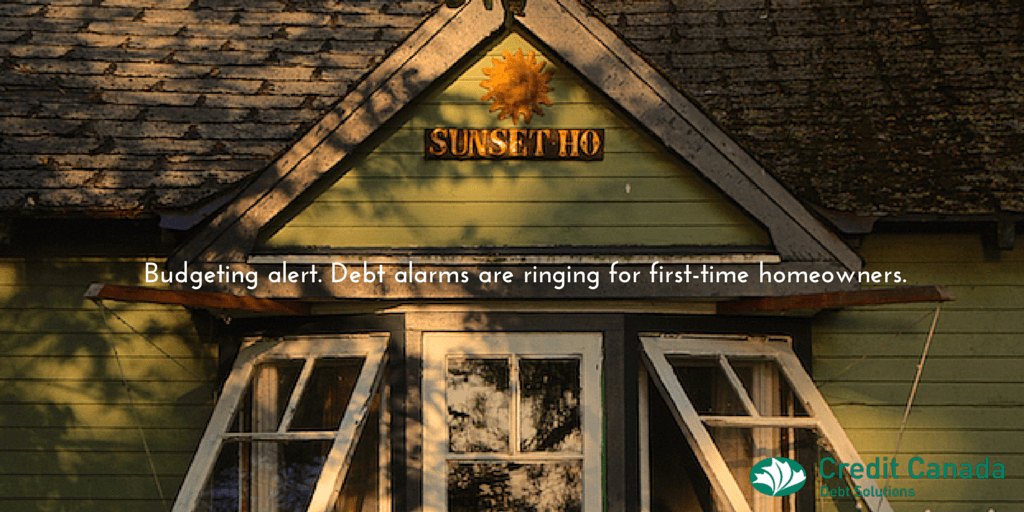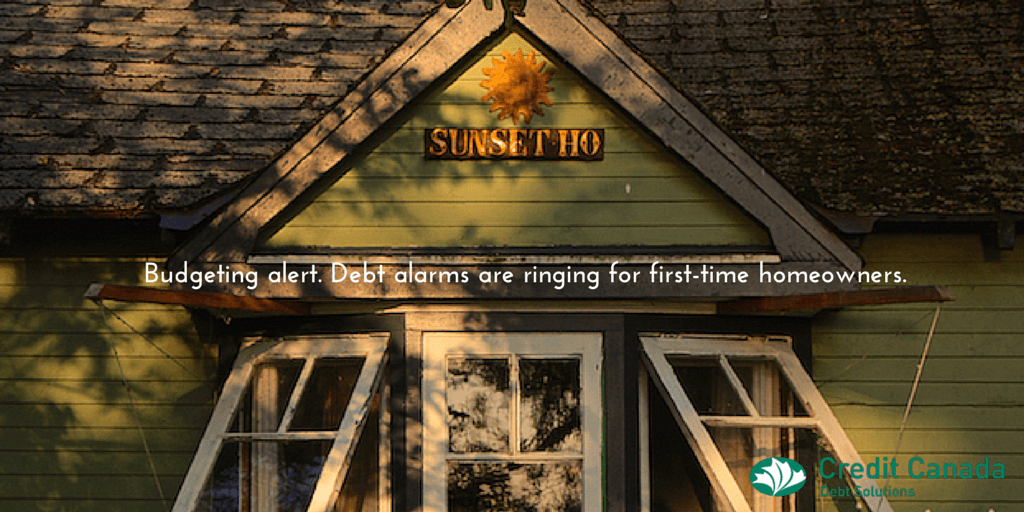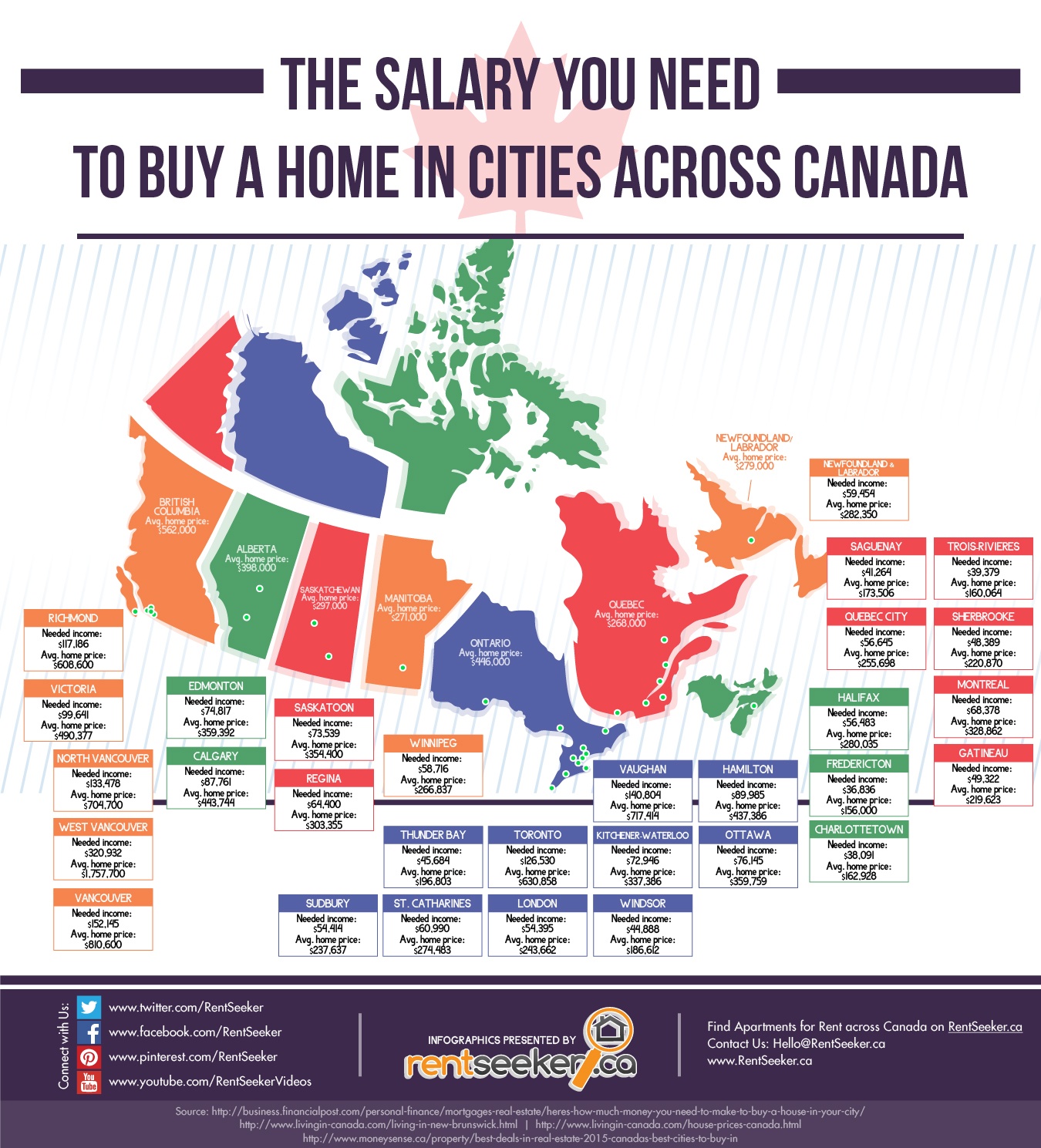

Time once more to take stock of Canada’s red-hot residential real estate market. As housing prices continue to skyrocket and mortgage debt problems increase, alarm bells are ringing loud and clear. Take what’s happening in the Greater Toronto Area (GTA) where my agency, Credit Canada Debt Solutions, is headquartered.
The real estate board reports that over the past year alone the average price of a stand-alone home grew from $943,000 to $1.115 million.
The city’s real estate board reports that over the past year alone the average price of a stand-alone home grew from $943,000 to $1.115 million. That’s a leap of 18.2 per cent. Meanwhile, the median price for a home of any type reached almost $631,000 this spring, according to RentSeeker.ca, which notes that a household income of almost $127,000 is needed to purchase a place at this price. Are these numbers through the roof? Perhaps as someone who’s looking to be a first-time homeowner, you tell me. Or better yet, let’s explore a little history for an answer.
Consider that in 2005 the median price for a home of any type in Toronto was about $336,000. That means prices have almost doubled during the past decade. At the same time, though, there has been no real growth in the average household income of Torontonians, which today amounts to about $70,000. As a matter of fact, the data shows that when you take inflation into account, the average household income of Torontonians in real terms is actually a few thousand dollars less than it was as far back as 1990. Here, I’m reminded of a wall plaque I once saw that read: The hurrier I go, the behinder I get.
Clearly, there is a big and ever growing gap between household earnings and household costs. At the start of 2005, median home prices in Toronto were less than five times the average annual household income. Today, the prices have ballooned to more than nine times the median annual income. What is filling this gap? The answer is low-cost debt.
I can’t help but wonder how people – particularly first-time homeowners – are coping with today’s housing prices.
Low interest on mortgages has been fuelling the GTA’s real estate boom for years now. Some experts say the cheap credit has created a housing market that could be overvalued by at least 30 per cent. That’s no small real estate bubble, which some warn could pop in the not too distant future. Particularly in relation to variable rate mortgages, even a small bump in interest rates could present significant family debt problems.
I can’t help but wonder how people – particularly first-time homeowners – are coping with today’s housing prices. Given the earnings-to-cost gap I’ve outlined, today’s trend towards “house poor” families should come as no surprise. The task of budgeting for expenses beyond increasingly burdensome mortgage payments is growing more daunting by the day. More homeowners amongst us are living paycheque to paycheque; more are facing unwelcome sacrifices in relation to hopes, dreams, and lifestyle expectations. More first-time homebuyers are looking to the bank of mom and dad for down payment money, too.
In considering a new home, ask yourself first what you honestly need rather than what you merely desire.
So what’s to be done about the situation? Well, as I see it Torontonians and all Canadians can benefit from smarter budgeting and financial planning practices, with special attention to borrowing – including both mortgage and non-mortgage debt – that can be managed without hardship. It all starts with a realistic approach to hopes and dreams.
In considering a new home, first ask yourself what you honestly need rather than what you fancifully desire. In the process, creative problem solving may come into play. For instance, in terms of stand-alone digs, you could end up avoiding a lot of financial grief by going with a smaller, more affordable fixer upper rather than a spacious place with a jumbo mortgage. Come to think of it, ask hard questions about the importance of space, location, and amenities. Might a single-level condo downtown work in place of a two-story side-by-side in Cabbage Town? Then, too, there’s always the option of renting as you postpone homeowner dreams and perhaps put more towards savings.
Above all, consider how your mortgage debt load is going to influence all budgeting matters over time since these days so much more is needed to make dream homes come true.
Frequently Asked Questions
Have a question? We are here to help.
What is a Debt Consolidation Program?
A Debt Consolidation Program (DCP) is an arrangement made between your creditors and a non-profit credit counselling agency. Working with a reputable, non-profit credit counselling agency means a certified Credit Counsellor will negotiate with your creditors on your behalf to drop the interest on your unsecured debts, while also rounding up all your unsecured debts into a single, lower monthly payment. In Canada’s provinces, such as Ontario, these debt payment programs lead to faster debt relief!
Can I enter a Debt Consolidation Program with bad credit?
Yes, you can sign up for a DCP even if you have bad credit. Your credit score will not impact your ability to get debt help through a DCP. Bad credit can, however, impact your ability to get a debt consolidation loan.
Do I have to give up my credit cards in a Debt Consolidation Program?
Will Debt Consolidation hurt my credit score?
Most people entering a DCP already have a low credit score. While a DCP could lower your credit score at first, in the long run, if you keep up with the program and make your monthly payments on time as agreed, your credit score will eventually improve.
Can you get out of a Debt Consolidation Program?
Anyone who signs up for a DCP must sign an agreement; however, it's completely voluntary and any time a client wants to leave the Program they can. Once a client has left the Program, they will have to deal with their creditors and collectors directly, and if their Counsellor negotiated interest relief and lower monthly payments, in most cases, these would no longer be an option for the client.








